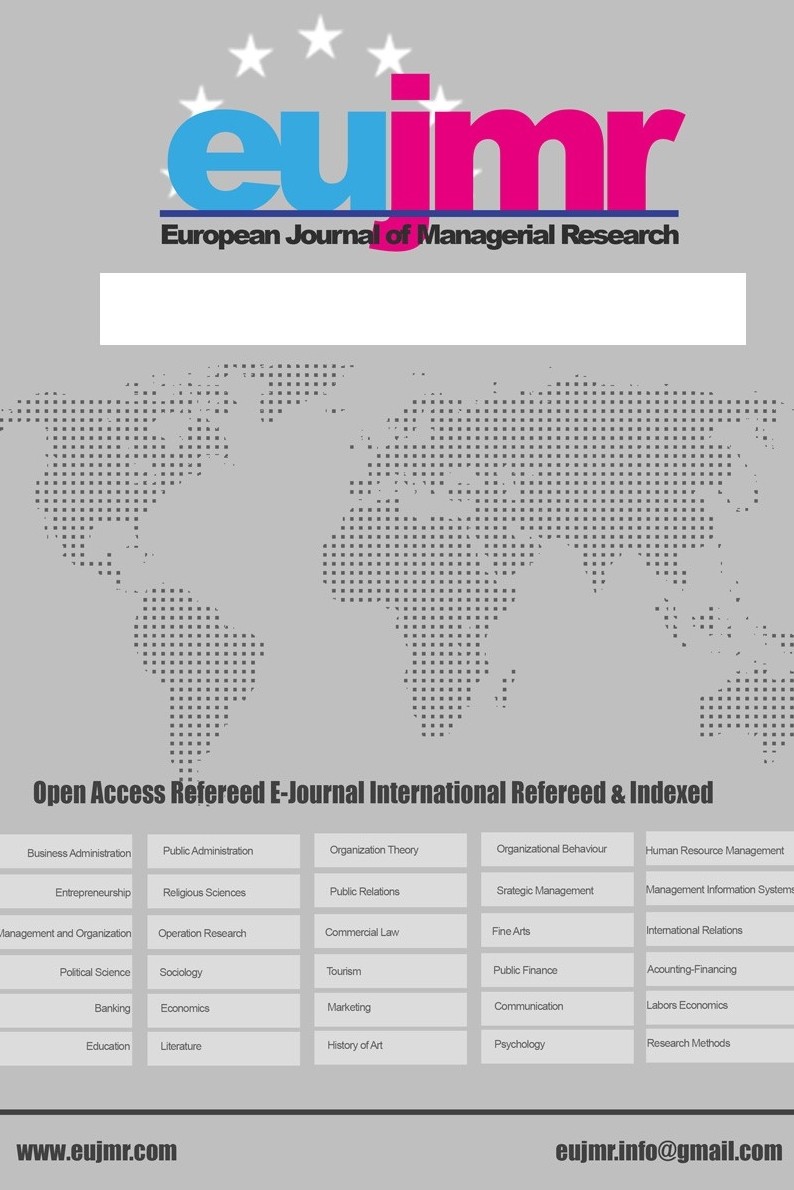FATIGUED TURKEY AND THE ATTEMPTS TO RE-ENERGIZE THE 54 YEARS OLD EUROPEAN DREAM; IS THERE A HOPE?
Yarım yüzyıldan fazla bir zaman önce, Avrupa Birliğinin (AB) oluşumunu müteakip, 1959 yılında yaptığı ortaklık başvurusuyla başlayan Türkiye’nin AB rüyası hiçbir zaman gerçeğe dönüşmedi. Daha önce birçok defa olduğu gibi, şu günlerde Türkiye-AB ilişkileri bir kez daha benzer zor bir aşamadan geçmektedir. İçinde bulunulan durumu uzun bir rüyadan uyanmak, aşırı yorgunluk, ümitsizlik ve benzeri hangi terminoloji ile açıklarsanız açıklayın, resmi müzakereler daha önceki gayri-resmi pazarlıklar gibi anormal bir şekilde uzamakta ve iki taraf için de çekilmez bir hal almaktadır. Pazarlığın içinden çıkılmaz bir hal alması ve sonuçsuz bir evrede bulunması, belki de birileri için tam da arzu edilen, kültürel ve dini konularda diğer üyelerle farklı olan Türkiye’yi dışarda bırakarak birliği bir Hristiyan kulübü olarak tutma çabalarının bir parçasıdır. AB, Türkiye gibi büyük bir ülkeyi üye olarak kabul edecek güç ve kapasiteden yoksun mudur gibi birçok soru da akla gelmekte ve devam etmekte olan müzakerelerin iyi bir sonuç vereceği sorgulanmaktadır. Bazı AB ülkeleri Türkiye ile pazarlıkları dondurma, sonlandırma veya üyelik dışında Brexit benzeri kalıcı bir ortaklık yapısını hayata geçirmek gibi üyelik dışındaki diğer seçenekleri dillendirmeye başladılar bile. İçinde bulunduğumuz belirsizlik döneminde, müzakerelere taraf olan tüm öğelerin bir kere daha üyelik pazarlıklarındaki amacın ne olduğunu gözden geçirip, katılım pazarlıklarının sonuç vermeyecek sonuçsuz bir sürünceme olduğu inancını ortadan kaldırmak için karar vermeye ihtiyaçları vardır. Bu çalışma, gündemin ilk sıralarında yerini koruyan, Türkiye’nin AB üyelik sürecinin geleceği, katılımla ilgili devam eden güncel sorunlar ve sonucu garanti olmayan bir oyalama taktiği gibi algılanan müzakerelerin bitirilebilir olup olmadığını irdelemektedir.
Anahtar Kelimeler:
AB, Türkiye, Türkiye-AB Üyelik, Serbest Bölge
FATIGUED TURKEY AND THE ATTEMPTS TO RE-ENERGIZE THE 54 YEARS OLD EUROPEAN DREAM; IS THERE A HOPE?
Following the formation of the European Union (EU) over a half century ago, Turkish dream of EU membership started in 1959 as an Associate Member has never become a reality. Currently, the European Union (EU) membership dream of Turkey is going through a rough period similar to its prior stalemate episodes. Call it a rude awakening, fatigue, hopelessness, or whatever the terminology we may like to use to describe the condition, it is getting old and wearing both of the negotiating sides down. The stalemate may be the goal of preserving the persona of the EU as a strictly Christian “club,” one that would consider Turkey to be an un-European country from cultural and religious standpoints. Is the EU club incapable of incorporating a larger candidate country like Turkey into the free trade block, or are there other reasons we may have for questioning the viability of the ongoing talks? Some of the member states of the EU already started to pronounce suspension, ending the ongoing accession negotiations, or otherwise formulating a relationship similar to Brexit that is something other than the full membership of the EU for Turkey. All involved need to take a hard look at the goals for membership and make a conclusive decision to eradicate the uncertainty and continuing fruitless talks. This paper will evaluate the prospects of this hotly debated membership status of Turkey, the current issues surrounding the ongoing accession negotiation processes, and the progress toward the completion of the now open ended and ongoing formal accession talks.
Keywords:
EU, Turkey, Turkish Membership Application of EU, Free Trade Block,
___
- Aydın-Düzgit, S. & Kaliber, A. (2016). Encounters with Europe in an Era of Domestic and International Turmoil: Is Turkey a De-Europeanizing Candidate Country? South European Society and Politics, 21(5), 1-14.
- Castle, S. (2010). Cameron Backs Turkey Bid to Join EU. The New York Times. Retrieved from http://www.nytimes.com/2010/07/28/world/europe/28iht-britain.html
- Bürgin, A. (2016). Why the EU Still Matters in Turkish Domestic Politics: Insights from Recent Reforms in Migration Policy. South European Society and Politics. 21(1), 105-118.
- Esfahani H. S. & Çeviker-Gürakar E. (2013). Fading Attraction: Turkey’s Shifting Relationship with the European Union. The Quarterly Review of Economics and Finance. 53(2013), 364–379.
- Flam, H. (2003). Turkey and the EU: Politics and economics of accession (Seminar Paper N 718). Stockholm, Sweden: Institute for International Economic Studies.
- Keegan, W. J. & Green, M. C. (2003). Global marketing (3rd ed.). Upper Saddle River, NJ: Prentice Hall.
- Kurter, O. (2010). Strategic Moves and Behaviors of a Corporation While Turkey Negotiates Accession Into the European Union (Doctoral Dissertation). Argosy University, Schaumburg, USA.
- Müftüler-Bac, M & Çiçek, A. (2017). A comparison of the European Union’s accession negotiations with Bulgaria and Turkey: the role of bilateral issues. Journal of Contemporary European Studies. 25(2), 180-196.
- Phinnemore D. & İçener E. (2016). Holding the door half (?) open: the EU and Turkey 10 years on. Journal of Contemporary European Studies. 24(4), 446-462.
- Samuel, H. (2018). EU must end 'hypocrisy' of allowing Turkey to become a full member, says Emmanuel Macron, The Telegraph, Jan 5.
- Stake, R. (1995). The art of case research. London, UK: Sage Publications, Inc.
- Turhan, E. (2016). Turkey’s EU accession process: do member states matter? Journal of Contemporary European Studies. 24(4), 463-477.
- Yaka, Ö. (2016). Why Not EU? Dynamics of the Changing Turkish Attitudes Towards EU Membership. Journal of Contemporary European Studies. 24(1), 149-170.
- Yin, R. (1993). Applications of case study research. Newbury Park, CA: Sage Publishing, Inc.
- Yayın Aralığı: Yılda 2 Sayı
- Başlangıç: 2017
- Yayıncı: Himmet KARADAL
Sayıdaki Diğer Makaleler
SENDİKAL ÖRGÜTLENME KRİZİ VE ÇIKIŞ YOLLARINA İLİŞKİN AB' DEN ÖRNEKLER
SEASONAL ERROR CORRECTION MODELS FOR MACROECONOMIC VARIABLES: THE CASE OF TURKISH ECONOMY
PSİKOLOJİK SÖZLEŞME VE İŞ TATMİNİ İLİŞKİSİ ÜZERİNE BİR ARAŞTIRMA
FATIGUED TURKEY AND THE ATTEMPTS TO RE-ENERGIZE THE 54 YEARS OLD EUROPEAN DREAM; IS THERE A HOPE?
